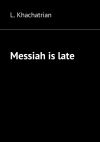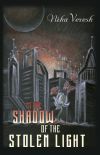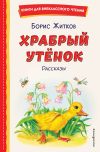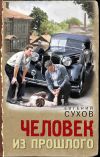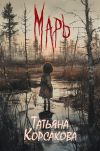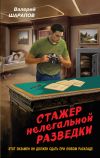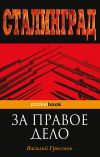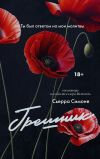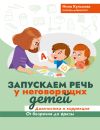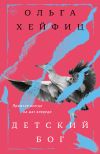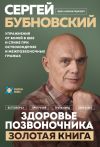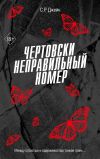
Автор книги: Михаил Сарапов
Жанр: Иностранные языки, Наука и Образование
Возрастные ограничения: +16
сообщить о неприемлемом содержимом
Текущая страница: 2 (всего у книги 20 страниц) [доступный отрывок для чтения: 7 страниц]

‘Well, well; you lead the way, and I’ll engage that the master shall give me shelter and a supper tonight.’
‘Eh, you can try him!’ muttered my reluctant guide; and, still shaking his head, he hobbled, gnome-like, away through the falling snow. A large mass loomed up presently out of the darkness, and a huge dog rushed out, barking furiously.
‘Is this the house?’I asked.
‘Ay, it’s the house. Down, Bey!’ And he fumbled in his pocket for the key.
I drew up close behind him, prepared to lose no chance of entrance, and saw in the little circle of light shed by the lantern that the door was heavily studded with iron nails, like the door of a prison. In another minute he had turned the key and I had pushed past him into the house.
Once inside, I looked round with curiosity (оказавшись внутри, я с любопытством огляделся; once – один раз, однажды; зд.: в усилительной функции), and found myself in a great raftered hall (и обнаружил, что нахожусь в большом зале, /без потолка/ со стропилами /над головой/; rafter – стропило; балка), which served, apparently, a variety of uses (и который использовался, по-видимому, в самых разных целях; to serve – служить, использоваться; variety – многообразие, разнообразие; ряд, множество). One end was piled to the roof with corn, like a barn (один конец был до крыши завален зерном, подобно амбару; to pile – складывать, сваливать в кучу; укладывать штабелями). The other was stored with flour-sacks (в другом хранились мешки с мукой; store – запас, резерв), agricultural implements (сельскохозяйственный инструмент), casks (бочонки), and all kinds of miscellaneous lumber (и самый разнообразный хлам; kind – сорт, вид; miscellaneous – смешанный; разнообразный; lumber – ненужные громоздкие вещи, брошенная мебель; хлам); while from the beams overhead hung rows of hams (а с балок над головой свисали ряды окороков), flitches (копченой свинины; flitch – сырокопченая свинина), and bunches of dried herbs for winter use (и пучки сушеных трав – припасы на зиму: «для зимнего использования»). In the centre of the floor stood some huge object gauntly dressed in a dingy wrapping-cloth (посередине: «в центре пола» стоял какой-то громоздкий объект с выпирающими из-под потрепанной накидки гранями; huge – большой, гигантский; gauntly – худой, костлявый, с выпирающими гранями; to dress – одевать; покрывать; to wrap – завертывать, обертывать; wrapping – упаковочный; cloth – ткань), and reaching half way to the rafters (поднимаясь на половину высоты /комнаты/ до стропил; to reach – достигать; half – половина; way – путь). Lifting a corner of this cloth, I saw, to my surprise, a telescope of very considerable size (приподняв уголок этой накидки, я увидел, к своему изумлению, телескоп весьма внушительного размера; considerable – значительный; важный, существенный), mounted on a rude movable platform, with four small wheels (установленный на грубой передвижной платформе c четырьмя маленькими колесиками; to mount – подниматься, восходить; монтировать, устанавливать). The tube was made of painted wood (труба была сделана из крашеного дерева), bound round with bands of metal rudely fashioned (скрепленного кольцами грубо обработанного металла; to bind – зажимать; стягивать; band – тесьма, лента; повязка; поясок, ремешок; to fashion – придавать форму); the speculum, so far as I could estimate its size in the dim light (отражатель, насколько я мог оценить его размер в тусклом свете), measured at least fifteen inches in diameter (был по крайней мере пятнадцати дюймов в диаметре; to measure – иметь размер; measure – мера; единица измерения). While I was yet examining the instrument (в то время как я все еще осматривал этот прибор), and asking myself whether it was not the work of some self-taught optician (спрашивая себя, не было ли это работой какого-нибудь оптика-самоучки; to teach – учить, обучать), a bell rang sharply (пронзительно зазвенел колокольчик; to ring; sharp – острый; резкий).

Once inside, I looked round with curiosity, and found myself in a great raftered hall, which served, apparently, a variety of uses. One end was piled to the roof with corn, like a barn. The other was stored with flour-sacks, agricultural implements, casks, and all kinds of miscellaneous lumber; while from the beams overhead hung rows of hams, flitches, and bunches of dried herbs for winter use. In the centre of the floor stood some huge object gauntly dressed in a dingy wrapping-cloth, and reaching half way to the rafters. Lifting a corner of this cloth, I saw, to my surprise, a telescope of very considerable size, mounted on a rude movable platform, with four small wheels. The tube was made of painted wood, bound round with bands of metal rudely fashioned; the speculum, so far as I could estimate its size in the dim light, measured at least fifteen inches in diameter. While I was yet examining the instrument, and asking myself whether it was not the work of some self-taught optician, a bell rang sharply.
‘That’s for you,’ said my guide, with a malicious grin (это вас: «для вас», – сказал мой гид со злобной ухмылкой). ‘Yonder’s his room (там его комната).’
He pointed to a low black door at the opposite side of the hall (он указал на низкую черную дверь на противоположной стороне зала). I crossed over (я пересек зал), rapped somewhat loudly (довольно громко постучал), and went in, without waiting for an invitation (и вошел, не ожидая приглашения). A huge, white-haired old man rose from a table covered with books and papers (огромный седой: «беловолосый» старик поднялся из-за стола, заваленного книгами и бумагами; to rise; to cover – закрывать, покрывать), and confronted me sternly (и сурово посмотрел на меня; to confront – стоять лицом к лицу).
‘Who are you?’ said he (кто вы? – сказал он). ‘How came you here (как вы сюда попали)? What do you want (чего вы хотите)?’
‘James Murray, barrister-at-law (Джеймс Мюррей, адвокат). On foot across the moor (пешком, через пустошь). Meat, drink, and sleep (поесть, попить и выспаться: «еда, питье и сон»; meat – мясо; /уст./ пища).’
He bent his bushy brows into a portentous frown (его кустистые брови зловеще нахмурились: «он изогнул свои кустистые брови в неодобрительной гримасе»; portentous – предсказывающий дурное; зловещий; frown – сдвинутые брови; хмурый взгляд; выражение неодобрения).
‘Mine is not a house of entertainment,’ he said, haughtily (мой дом – не увеселительное заведение, – высокомерно сказал он; entertainment – увеселительное мероприятие; развлечение, веселье). ‘Jacob, how dared you admit this stranger (Джейкоб, как ты осмелился впустить этого незнакомца; to admit – допускать; впускать)?’

‘That’s for you,’ said my guide, with a malicious grin. ‘Yonder’s his room.’
He pointed to a low black door at the opposite side of the hall. I crossed over, rapped somewhat loudly, and went in, without waiting for an invitation. A huge, white-haired old man rose from a table covered with books and papers, and confronted me sternly.
‘Who are you?’ said he. ‘How came you here? What do you want?’
‘James Murray, barrister-at-law. On foot across the moor. Meat, drink, and sleep.’
He bent his bushy brows into a portentous frown.
‘Mine is not a house of entertainment,’ he said, haughtily. ‘Jacob, how dared you admit this stranger?’
‘I didn’t admit him,’ grumbled the old man (я не впускал его, – проворчал старик). ‘He followed me over the muir (он увязался за мной на пустоши; to follow – следовать, идти за; muir /шотл./ = moor – вересковая пустошь), and shouldered his way in before me (и ворвался в дом впереди меня; to shoulder – толкать плечом; shoulder – плечо; to shoulder one’s way – проталкиваться). I’m no match for six foot two (я не преграда для двухметрового /верзилы/: «для шести футов двух /дюймов/ = 188 см»; match – зд.: равный по силам противник, достойный соперник).’
‘And pray, sir, by what right have you forced an entrance into my house (и по какому же праву, соизвольте сказать, сэр, вы вломились ко мне в дом; to pray – молиться; настоятельно просить; to force – с силой преодолевать сопротивление; force – сила; entrance – вход, входная дверь; доступ, право входа; to force an entrance – ворваться)?’
‘The same by which I should have clung to your boat, if I were drowning (по тому же /праву/, что было бы у меня, если бы я тонул и вцепился в вашу лодку; to cling – цепляться; крепко держаться). The right of self-preservation (по праву бороться за свою жизнь; self-preservation – самосохранение).’
‘Self-preservation (бороться за свою жизнь)?’
‘There’s an inch of snow on the ground already,’ I replied, briefly (земля уже покрыта трехсантиметровым слоем снега: «на земле уже дюйм снега», – кратко ответил я); ‘and it would be deep enough to cover my body before daybreak (а к утру он будет достаточно глубок, чтобы покрыть мое тело; daybreak – рассвет).’
He strode to the window (он прошагал к окну; to stride – шагать большими шагами), pulled aside a heavy black curtain (отогнул тяжелую черную штору; to pull – тянуть; aside – в сторону), and looked out (и выглянул в окно).
‘It is true (это верно),’ he said. ‘You can stay, if you choose, till morning (вы можете остаться, если хотите, до утра; to choose – выбирать). Jacob, serve the supper (Джейкоб, подавай ужин; to serve – служить; накрывать на стол; подавать).’
With this he waved me to a seat (с этими словами он указал мне на стул; to wave – подавать сигнал, махать; seat – сиденье), resumed his own (вернулся на свое /место/; to resume – возобновлять, продолжать /после перерыва/; начинать снова; возвращаться на старую позицию), and became at once absorbed in the studies from which I had disturbed him (и сразу же погрузился: «стал поглощен» в свое занятие, прерванное мной; study – приобретение знаний; изучение; научные занятия; to disturb – расстраивать, нарушать, прерывать).

‘I didn’t admit him,’ grumbled the old man. ‘He followed me over the muir, and shouldered his way in before me. I’m no match for six foot two.’
‘And pray, sir, by what right have you forced an entrance into my house?’
‘The same by which I should have clung to your boat, if I were drowning. The right of self-preservation.’
‘Self-preservation?’
‘There’s an inch of snow on the ground already,’ I replied, briefly; ‘and it would be deep enough to cover my body before daybreak.’
He strode to the window, pulled aside a heavy black curtain, and looked out.
‘It is true,’ he said. ‘You can stay, if you choose, till morning. Jacob, serve the supper.’
With this he waved me to a seat, resumed his own, and became at once absorbed in the studies from which I had disturbed him.
I placed my gun in a corner (я поставил ружье в угол; to place – помещать, размещать; класть, ставить; place – место), drew a chair to the hearth (пододвинул стул к камину; to draw – тащить, волочить; тянуть; hearth – дом, домашний очаг; камин), and examined my quarters at leisure (и не торопясь осмотрел помещение; quarters – жилище, жилье, помещение; leisure – досуг; at leisure – на досуге; не спеша). Smaller and less incongruous in its arrangements than the hall (меньше по размеру, чем холл, и не так беспорядочно обставленная; incongruous – несоответственный, несочетаемый; arrangement – приведение в порядок; расположение; расстановка), this room contained, nevertheless, much to awaken my curiosity (эта комната содержала, тем не менее, многое, что разбудило мое любопытство). The floor was carpetless (ковра на полу не было; carpet – ковер; – less – /суф./ образует от существительных прилагательные со значением «лишенный чего-либо», «не имеющий чего-либо»). The whitewashed walls were in parts scrawled over with strange diagrams (побеленные стены были местами испещрены странными схемами; to wash – мыть; белить /потолок, стены/; in parts – кое в чем, кое-где; to scrawl – писать наспех; писать неразборчиво; diagram – диаграмма; график; схема, чертеж), and in others: «в других /местах/» covered with shelves crowded with philosophical instruments (а местами скрывались за полками, заставленными физическими инструментами; to cover – накрывать, закрывать, покрывать; crowd – толпа; большое количество, множество; philosophical – относящийся к ‘natural philosophy’[3]3
Natural philosophy (первоначально «натурфилософия») – общее название существовавших в древности вплоть до XIХ века философских учений о природе, не опиравшихся на строгие естественно-научные знания. Позднее – физика в современном понятии (уст., теперь в этом значении используется только в шотландских университетах).
[Закрыть]), the uses of many of which were unknown to me (назначение многих из них было мне незнакомо; use – употребление, применение, использование; польза, толк). On one side of the fireplace, stood a bookcase filled with dingy folios (с одной стороны от камина стоял книжный шкаф, заполненный потрепанными фолиантами; folio – зд.: книга, том, фолиант); on the other, a small organ (с другой – небольшой орган), fantastically decorated with painted carvings of medieval saints and devils (с причудливой резной отделкой из раскрашенных средневековых святых и чертей; fantastical – фантастический; причудливый; мифический, сказочный; to decorate – украшать; carving – резьба /по дереву, кости, камню/; to carve – резать, вырезать /по дереву или кости/). Through the half-opened door of a cupboard at the further end of the room (через приоткрытую: «полуоткрытую» дверь буфета в дальнем углу комнаты), I saw a long array of geological specimens (я видел длинные ряды геологических образцов; array – строй, боевой порядок; набор, комплект), surgical preparations (анатомических препаратов; surgical – хирургический), crucibles (тиглей), retorts (реторт), and jars of chemicals (банок с химикалиями); while on the mantelshelf beside me (а на каминной полке рядом со мной), amid a number of small objects, stood a model of the solar system (среди прочих мелких предметов стояли модель солнечной системы), a small galvanic battery (небольшая гальваническая батарея), and a microscope (и микроскоп). Every chair had its burden (на каждом стуле что-нибудь лежало; burden – ноша; груз). Every corner was heaped high with books (в каждом углу были высокие стопки книг; to heap – складывать в кучу, нагромождать; heap – куча, груда). The very floor was littered over with maps (сам пол был усыпан картами), casts (слепками; cast – бросок; /гипсовый/ слепок), papers (бумагами), tracings (рисунками; tracing – скалькированный чертеж, рисунок; to trace – чертить, набрасывать; снимать копию; калькировать), and learned lumber of all conceivable kinds (и самым разнообразным научным хламом; learned – ученый, эрудированный; научный /о журнале, обществе/; conceivable – мыслимый, постижимый; возможный; kind – сорт, вид, класс).

I placed my gun in a corner, drew a chair to the hearth, and examined my quarters at leisure. Smaller and less incongruous in its arrangements than the hall, this room contained, nevertheless, much to awaken my curiosity. The floor was carpetless. The whitewashed walls were in parts scrawled over with strange diagrams, and in others covered with shelves crowded with philosophical instruments, the uses of many of which were unknown to me. On one side of the fireplace, stood a bookcase filled with dingy folios; on the other, a small organ, fantastically decorated with painted carvings of medieval saints and devils. Through the half-opened door of a cupboard at the further end of the room, I saw a long array of geological specimens, surgical preparations, crucibles, retorts, and jars of chemicals; while on the mantelshelf beside me, amid a number of small objects, stood a model of the solar system, a small galvanic battery, and a microscope. Every chair had its burden. Every corner was heaped high with books. The very floor was littered over with maps, casts, papers, tracings, and learned lumber of all conceivable kinds.
I stared about me with an amazement (я осматривал все вокруг с изумлением; to stare – пристально глядеть, уставиться; смотреть в изумлении; amazement – изумление, удивление) increased by every fresh object upon which my eyes chanced to rest (увеличивавшимся с каждым новым объектом, который случайно попадал мне на глаза; fresh – свежий; новый, только что появившийся; to chance – случайно наткнуться; to rest – покоиться, останавливаться /о взгляде/). So strange a room I had never seen (такой странной комнаты я еще никогда не видел); yet seemed it stranger still, to find such a room in a lone farmhouse (но еще более странным было обнаружить такую комнату в уединенном фермерском доме) amid those wild and solitary moors (среди этих диких и необитаемых пустошей; solitary – одинокий; уединенный)! Over and over again, I looked from my host to his surroundings (снова и снова я переводил взгляд с хозяина этого дома на предметы, его окружавшие: «со своего хозяина на его окружение»; to look – смотреть), and from his surroundings back to my host (и с того, что его окружало, снова на хозяина дома), asking myself who and what he could be (спрашивая себя, кто он такой и чем он может заниматься)? His head was singularly fine (очертания его головы были утонченными: «его голова была необычно изящной»; fine – тонкий, утонченный; изящный); but it was more the head of a poet than of a philosopher (но это была скорее: «больше» голова поэта, чем ученого). Broad in the temples (широкий лоб: «широкая во лбу»; temple – висок), prominent over the eyes (/c/ выступающими надбровьями: «выступающим над глазами»; eye – глаз), and clothed with a rough profusion of perfectly white hair (увенчанная непричесанной гривой совершенно седых волос; to clothe – накрывать, покрывать; rough – грубый, дикий, бурный; profusion – изобилие, избыток), it had all the ideality and much of the ruggedness that characterises the head of Louis von Beethoven (голова эта отличалась тем же порывом в мир идеала и той же массивностью: «она имела всю идеальность и многое из массивности», что характеризуют голову Людвига ван Бетховена). There were the same deep lines about the mouth (те же глубокие складки в углах рта), and the same stern furrows in the brow (такие же, придающие суровость, морщины на лбу; stern – строгий, суровый, безжалостный; furrow – глубокая морщина). There was the same concentration of expression (та же глубина чувств читалась на лице: «там была та же концентрация выражения»; expression – выражение /лица, глаз и т. п./). While I was yet observing him, the door opened, and Jacob brought in the supper (в то время как я все еще так наблюдал за ним, открылась дверь, и Джейкоб стал накрывать ужин: «принес ужин»; to bring). His master then closed his book, rose (/тогда/ его хозяин закрыл книгу, поднялся; to rise), and with more courtesy of manner than he had yet shown, invited me to the table (и с большей учтивостью, чем он до сих пор проявил, пригласил меня к столу; courtesy – учтивость, обходительность; manner – манера, поведение; to show – показывать; проявлять, выказывать /эмоции/).

I stared about me with an amazement increased by every fresh object upon which my eyes chanced to rest. So strange a room I had never seen; yet seemed it stranger still, to find such a room in a lone farmhouse amid those wild and solitary moors! Over and over again, I looked from my host to his surroundings, and from his surroundings back to my host, asking myself who and what he could be? His head was singularly fine; but it was more the head of a poet than of a philosopher. Broad in the temples, prominent over the eyes, and clothed with a rough profusion of perfectly white hair, it had all the ideality and much of the ruggedness that characterises the head of Louis von Beethoven. There were the same deep lines about the mouth, and the same stern furrows in the brow. There was the same concentration of expression. While I was yet observing him, the door opened, and Jacob brought in the supper. His master then closed his book, rose, and with more courtesy of manner than he had yet shown, invited me to the table.
A dish of ham and eggs (ветчину с яйцами; dish – блюдо), a loaf of brown bread (буханку ржаного: «коричневого» хлеба), and a bottle of admirable sherry (и бутылку превосходного хереса), were placed before me (поставили передо мной).
‘I have but the homeliest farmhouse fare to offer you, sir,’ said my entertainer (я могу предложить вам лишь самую скромную снедь фермера, – сказал мой хозяин; homely – простой, обыденный, безыскусственный; farmhouse – жилой дом на ферме; fare – режим питания; провизия, съестные припасы; пища; to entertain – принимать, угощать /гостей/; entertainer – тот, кто принимает, угощает). ‘Your appetite, I trust, will make up for the deficiencies of our larder (ваш аппетит, полагаю я, скрасит недостатки нашей снеди; to trust – верить, доверять; надеяться; считать, полагать; to make up – возмещать, компенсировать; larder – кладовая /для продуктов/; запас еды).’
I had already fallen upon the viands (я уже накинулся на пищу; to fall – падать; нападать, налетать, набрасываться; viand – /уст./ пища, провизия), and now protested, with the enthusiasm of a starving sportsman (и теперь запротестовал, со /всем/ пылом оголодавшего охотника; sportsman – спортсмен; охотник-любитель), that I had never eaten anything so delicious (что я никогда не ел ничего столь вкусного).
He bowed stiffly (он чопорно поклонился; stiff – жeсткий, тугой, негибкий), and sat down to his own supper (и сел за свой ужин; to sit down), which consisted, primitively, of a jug of milk and a basin of porridge (который состоял всего лишь из кувшина молока и миски овсянки). We ate in silence, and, when we had done, Jacob removed the tray (мы ели молча, и, когда мы закончили, Джейкоб убрал поднос). I then drew my chair back to the fireside (тогда я опять пододвинул свой стул к камину). My host, somewhat to my surprise, did the same, and turning abruptly towards me, said (мой хозяин, несколько к моему удивлению, поступил так же, и, резко повернувшись ко мне, сказал):

A dish of ham and eggs, a loaf of brown bread, and a bottle of admirable sherry, were placed before me.
‘I have but the homeliest farmhouse fare to offer you, sir,’ said my entertainer. ‘Your appetite, I trust, will make up for the deficiencies of our larder.’
I had already fallen upon the viands, and now protested, with the enthusiasm of a starving sportsman, that I had never eaten anything so delicious.
He bowed stiffly, and sat down to his own supper, which consisted, primitively, of a jug of milk and a basin of porridge. We ate in silence, and, when we had done, Jacob removed the tray. I then drew my chair back to the fireside. My host, somewhat to my surprise, did the same, and turning abruptly towards me, said:
‘Sir, I have lived here in strict retirement for three-and-twenty years (сэр, я прожил здесь в строгом уединении двадцать три года; retirement – отставка; уединение; изолированность; уединенная жизнь; to retire – удаляться, отступать, ретироваться; увольняться; уходить в отставку). During that time, I have not seen as many strange faces (за это время немного я видел незнакомых лиц), and I have not read a single newspaper (и я не прочитал ни единой газеты). You are the first stranger who has crossed my threshold for more than four years (вы первый незнакомец, который переступил мой порог за более чем четыре года). Will you favour me with a few words of information (не окажете ли вы мне любезность, кратко поделившись со мной сведениями: «несколькими словами информации»; to favour – благоволить, быть благосклонным, быть согласным; оказывать внимание, любезность) respecting that outer world from which I have parted company so long (относительно того внешнего мира, с которым я расстался так давно; company – общество, компания)?’
‘Pray interrogate me,’ I replied (пожалуйста, спрашивайте, – ответил я). ‘I am heartily at your service (я всецело к вашим услугам; heartily – искренне, сердечно; охотно; целиком, совершенно).’
He bent his head in acknowledgment, leaned forward (он кивнул головой в подтверждение, наклонился вперед; to bend – сгибать; гнуть; acknowledg(e)ment – признание; подтверждение), with his elbows resting on his knees and his chin supported in the palms of his hands (локти на коленях, уперев подбородок в ладони; to rest – покоиться, лежать; to support – поддерживать, подпирать; palm – ладонь; hand – кисть руки); stared fixedly into the fire; and proceeded to question me (и, не отрывая взгляда от огня, начал расспрашивать меня; to stare – пристально глядеть, уставиться; fixedly – пристально, сосредоточенно; to proceed – приступать, приниматься).

‘Sir, I have lived here in strict retirement for three-and-twenty years. During that time, I have not seen as many strange faces, and I have not read a single newspaper. You are the first stranger who has crossed my threshold for more than four years. Will you favour me with a few words of information respecting that outer world from which I have parted company so long?’
‘Pray interrogate me,’ I replied. ‘I am heartily at your service.’
He bent his head in acknowledgment, leaned forward, with his elbows resting on his knees and his chin supported in the palms of his hands; stared fixedly into the fire; and proceeded to question me.
His inquiries related chiefly to scientific matters (его расспросы касались, в основном, научных вопросов = вопросов науки; to relate – относиться, иметь отношение; затрагивать; matter – вещество; материя; вопрос, дело), with the later progress of which (с последними достижениями которой), as applied to the practical purposes of life (применительно к практическому использованию в жизни; to apply – зд.: применять, использовать, употреблять; purpose – назначение, цель), he was almost wholly unacquainted (он был почти совсем: «полностью» незнаком). No student of science myself (сам небольшой знаток науки; student – изучающий; ученый), I replied as well as my slight information permitted (я отвечал так, насколько мне позволяли мои скудные познания; as well as – так же как; slight – худой, худощавый; небольшой, незначительный; information – знания; компетентность, осведомленность); but the task was far from easy (но это была далеко не легкая задача), and I was much relieved when, passing from interrogation to discussion (и я почувствовал большое облегчение, когда, перейдя от расспросов к обсуждению; to relieve – облегчать), he began pouring forth his own conclusions upon the facts (он начал излагать свои выводы из тех фактов; to pour – литься /о воде, свете/; сыпаться /о словах/) which I had been attempting to place before him (которые я попытался донести до него; to place – помещать, размещать). He talked, and I listened spellbound (он говорил, а я слушал как завороженный; to spellbind – заколдовывать, околдовывать, очаровывать; spell – заклинание; чары; to bind – связывать). He talked till I believe he almost forgot my presence, and only thought aloud (он говорил /и говорил так/ что, я полагаю, он вскоре почти забыл о моем присутствии и просто думал вслух; till – пока, до тех пор пока /не/). I had never heard anything like it then (ничего подобного я никогда не слышал /и/ в то время; to hear); I have never heard anything like it since (ничего подобного я не услышал больше с тех пор). Familiar with all systems of all philosophies (хорошо разбирающийся во всех системах всех естественнонаучных взглядов; familiar – близкий, привычный; фамильярный; знающий, хорошо осведомленный), subtle in analysis (проницательный в анализе; subtle – нежный; утонченный, изысканный; острый, проницательный), bold in generalisation (смелый в обобщениях), he poured forth his thoughts in an uninterrupted stream (он изливал свои мысли непрерывным потоком; to interrupt – прерывать), and, still leaning forward in the same moody attitude with his eyes fixed upon the fire (и, по-прежнему наклонившись вперед в той же задумчивой позе, устремив глаза на огонь; mood – настроение; расположение духа; attitude – позиция; отношение; поза; to fix – фиксировать, закрепить, прикрепить), wandered from topic to topic, from speculation to speculation, like an inspired dreamer (переходил от темы к теме, от одной гипотезы/теории к другой, как вдохновенный мечтатель; to wander – странствовать, скитаться, блуждать; speculation – размышление, обдумывание; предположение, теория, догадка, умозрительное построение).

His inquiries related chiefly to scientific matters, with the later progress of which, as applied to the practical purposes of life, he was almost wholly unacquainted. No student of science myself, I replied as well as my slight information permitted; but the task was far from easy, and I was much relieved when, passing from interrogation to discussion, he began pouring forth his own conclusions upon the facts which I had been attempting to place before him. He talked, and I listened spellbound. He talked till I believe he almost forgot my presence, and only thought aloud. I had never heard anything like it then; I have never heard anything like it since. Familiar with all systems of all philosophies, subtle in analysis, bold in generalisation, he poured forth his thoughts in an uninterrupted stream, and, still leaning forward in the same moody attitude with his eyes fixed upon the fire, wandered from topic to topic, from speculation to speculation, like an inspired dreamer.
From practical science to mental philosophy (от практической науки к психологии; mental – умственный, связанный с деятельностью мозга; philosophy – философия); from electricity in the wire to electricity in the nerve (от электрического тока /бегущего/ по проводу до электрических импульсов в нерве; wire – проволока; электрический провод); from Watts to Mesmer (от Ватта к Месмеру[4]4
Франц Антон Месмер (1734–1815) – австрийский врач, основоположник месМэризма, в основе которого лежит учение о так называемом magnétisme animal, что традиционно, но не совсем верно на русский переводится как «животный магнетизм», посредством которого можно изменять состояние организма, в т. ч. излечивать болезни.
[Закрыть]), from Mesmer to Reichenbach (от Месмера к Рейхенбаху[5]5
Карл Людвиг фон Рейхенбах (1788–1869) – известный химик, геолог, металлург, философ. Последние годы жизни посвятил изучению патологий нервной системы человека, что привело его к теории «Силы Одина», – формы жизненной энергии, родственной магнетизму, которая пронизывает и соединяет все живые существа.
[Закрыть]), from Reichenbach to Swedenborg (от Рейхенбаха к Сведенборгу[6]6
Эмануэль Сведенборг (1688–1772), шведский ученый и теософ-мистик.
[Закрыть]), Spinoza, Condillac, Descartes, Berkeley, Aristotle, Plato (Спинозе, Кондильяку,[7]7
Этьен Бонно де Кондильяк (1715–80) – французский философ. Развил сенсуалистическую теорию познания: ощущения – единственный источник знаний. Один из основоположников ассоциативной психологии.
[Закрыть] Декарту, Беркли,[8]8
Джордж Беркли (1685–1753) – английский философ. Утверждал, что внешний мир не существует независимо от восприятий и мышления: бытие вещей состоит в их воспринимаемости. Субъективно-идеалистическое учение Беркли – один из источников эмпириокритицизма, прагматизма, неопозитивизма.
[Закрыть] Аристотелю, Платону), and the Magi and mystics of the East (и к магам и мистикам Востока; magus – маг, колдун, волхв, чародей), were transitions which, however bewildering in their variety and scope (/те/ переходы, которые, как бы они ни были поразительны по своему разнообразию и размаху; to bewilder – смущать; приводить в замешательство; scope – границы, рамки, пределы; масштаб, размах; сфера), seemed easy and harmonious upon his lips as sequences in music (казались в его устах /такими же/ легкими и гармоничными, как музыкальные секвенции; sequence – последовательность; ряд; очередность; /муз./ секвенция). By-and-by – I forget now by what link of conjecture or illustration (постепенно – я забыл теперь, в связи ли с /каким-то/ предположением или как иллюстрация /к чему-то/; link – связь; соединение) – he passed on to that field (он перешел к той сфере; field – поле; область, сфера, поле деятельности) which lies beyond the boundary line of even conjectural philosophy (которая лежит за пределами: «за пограничной линией» даже гипотетической науки; conjecture – гипотеза, догадка, предположение; conjectural – гипотетический, предположительный; philosophy – философия; философская система), and reaches no man knows whither (и простирается в неведомое: «никто не знает, куда»). He spoke of the soul and its aspirations (он говорил о человеческом духе и духовных устремлениях; soul – душа; дух); of the spirit and its powers (о душе и ее возможностях; spirit[9]9
Soul и spirit – во многом синонимы. Spirit – тот жизненный принцип, что отличает живое от неживого, в то время как soul – нематериальная составляющая человека, душа в христианском понимании, т. е. в прямом значении применимо только к человеку.
[Закрыть] – дух; духовное начало; душа); of second sight (о ясновидении: «втором зрении»); of prophecy (о предсказаниях: «пророчестве»); of those phenomena which (о тех феноменах, которые), under the names of ghosts, spectres, and supernatural appearances (которые под именем привидений, призраков или сверхъестественных проявлений; ghost – привидение, призрак; дух; spectre – привидение, призрак, фантом), have been denied by the sceptics and attested by the credulous, of all ages (были во все века отрицаемы скептиками и подтверждаемы легковерными = существование которых было…; to attest – подтверждать, заверять, удостоверять).
Правообладателям!
Данное произведение размещено по согласованию с ООО "ЛитРес" (20% исходного текста). Если размещение книги нарушает чьи-либо права, то сообщите об этом.Читателям!
Оплатили, но не знаете что делать дальше?